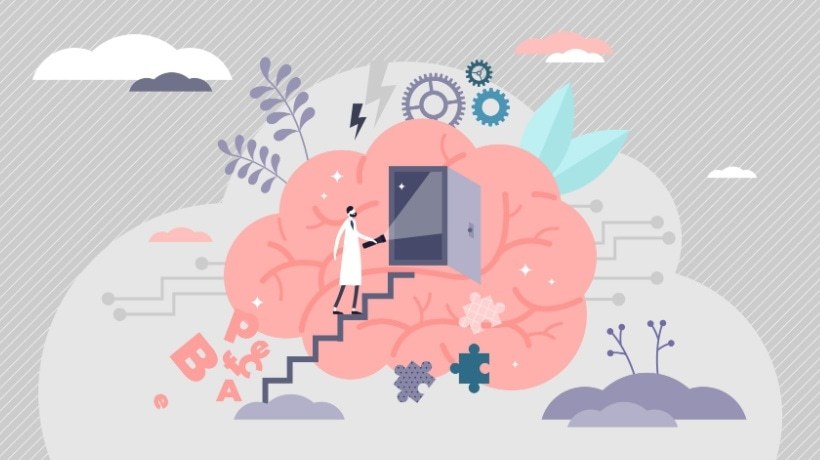Issues About Resistance To Change
The rapid rise of technology, integrated into most aspects of life, has accelerated during the pandemic to produce polarized views and human conflicts. The article explains these in regard to human history and behavior, and Part 2 advocates a holistic approach to education which technology can assist.
Human Factors
Literature, across ages, reflects and informs upon society issues and this review examines why their views and opinions are consistently ignored. Technology increases information exchanges, which can be misunderstood. Two British brothers caused a recent high school lockdown for making a joke on Facebook saying, "Feeling cute, might go and shoot up a school," with a picture of an AK47 rifle. This backfired as it was taken literally when shared. The brothers were jesting with friends but found themselves before magistrates and 12-month community order plus 50 days of unpaid work. The reason why this happened can be traced to the historic, enduring disagreement over human nature and its influence over time. This makes it difficult to learn from past and present circumstances which technology can escalate.
Half of the population believes that human beings are inherently good, kind individuals who are able to reach potential through suitable child-rearing and educational practices. They, take the view, therefore, that experts and elite are to be trusted and should be given the power to achieve progress through their policies, plans, and practices. These elites have been described by the philosopher, Thomas Sowell (1995), as "self-anointed" and are often obsessed with politics and rooted in a particular view of life. The saying "power corrupts" has historically been exhibited by such rulers across the world.
In contrast, the other half is convinced that those in authority are self-interested and fallible and their power should be constrained and restrained to reduce the possibility of tragic failures. This group believes in the wisdom of crowds and the real-life experiences of working people, who understand issues because they affect their lives in various, direct ways. The first group dismisses the second one as pessimistic and unambitious whereas the latter criticizes the former’s lack of realism and understanding of the human condition.
It is clear that the post-industrial and Cold War world is becoming more and more complex as a result of fast-moving technological, scientific, economic, and geopolitical forces. The question, as members of a global society and specifically of the education profession, is how to react to this. Should we trust the experts and elites, given the scale of present challenges, or should we encourage new ideas and experimentation?
The problem with governments, elites, and expert bodies is that they embrace a top-down approach when what is needed is a greater emphasis on bottom-up solutions (Wallach & Miller, 1988). With regard to education, we have implemented a British National Curriculum since 1989, with a one-size-fits-all approach to learning and achieving. Children, however, have varying needs, especially in our diverse populations, and require different approaches to help them reach their potential. Should we centralize power and political authority or decentralize this, giving local areas more control over operations? Would this build resilient networks that can cope with the challenges and setbacks in life? Should we be seeking National, European/worldwide solutions to ever-increasing problems, or trust local areas to find answers for their own specific circumstances?
Traditionally, the first group (powerful experts/elites) have held sway in society and if there is a difficulty, a top-down solution is implemented. For example, a British problem with the lowering of educational standards, in relation to other comparable nations, has resulted in more rules, regulations, and bureaucracy that has increased the number who are failing students. Sage (2010), in a book about diversity, gives an example of a typical school in a Midland city where half the children are on the special needs register because of such pan-educational policies. An ambitious attempt at centralization and harmonization of the educational curriculum has been disastrous in this particular case.
Literature Examples
This situation is reviewed and reflected on in plays such as Willy Russell’s (1980/2013) Educating Rita, which deals with the concept of freedom, change, the British class system, the shortcomings of institutional education, and the nature of self-development and personal relationships. In like manner, the following examples show the disastrous situation that occurs in education because there is no workable curriculum. Lional Shriver's (2010) We Need to Talk About Kevin deals with a brutal school massacre. The perpetrator's mourning mother turns toward letter writing for solace in her confusion. Although fiction, it presents a sensitive look into one way a murderous, mentally-disturbed student might emerge. Audiences are left to decide for themselves whether or not they consider such behaviors the result of nature, nurture, or a blend of both of these influences. Anyone tasked with teaching or mentoring troubled teenagers might appreciate the insight, however grim the narrative.
Braithwaite's (1959) To Sir, With Love, a part autobiographical and intense text, tells the tale of a former RAF crew member who finds himself teaching in a secondary school in the explosive, London East End. Battling apathy in the classroom and racial discrimination outside it, he decides to seize the day and take an unorthodox approach to educating his students. Since they desire adult treatment ("by God, he'll give him that"), lessons include museum trips and more open, frank communication, all of which prove effective, long-term strategies.
Finally, in Zadie Smith’s (2005) tribute to Forster's (1910) Howards End, this British writer satirizes higher education, while providing provocative insight into race relations. Here, Zadie Smith in On Beauty (2005) compares and contrasts the UK and US, atheism and belief, black, white, and mixed-race, conservatism and liberalism, wealth and poverty, and other common binary groups. Affirmative action is one of the book's fiercely-debated topics. Despite considerable drama both on and off-campus, however, the two families in the novel still manage to find common ground and strive toward some semblance of harmony. There is much we can learn from these tales to reflect on in our divisive society.
Charles Dickens's (1854) Hard Times illuminates utilitarianism and political economy, amongst other major themes. The schoolmaster, Mr. Gradgrind, applies a strict utilitarian teaching method to his pupils. At the end of the novel, Dickens shows the destructive force of such a method. Gradgrind’s daughter has no outlet for her feelings and relies on her brother, who finds consolation in gambling and ends up robbing a bank. When the theft comes to life, he tells his father, (Mr. Gradgrind) that he is governed by the system. With rising juvenile crime in Britain, this book has much to teach us in the 21st century.
Are pupils today any different? One-size education cannot work for all. With so many abstract rules, reforms, and policies, our individual responsibility is diminished in favor of government conformity. Our choices are limited under Ofsted's control. The low educational standards presented in Dickens’s Nicholas Nickleby (1838) run parallel to some UK schools. The headmaster in Nicholas Nickleby operates his school in a brutal, exploitative manner. The pupils are broken and miserable. Although we do not cane children today, we do not give them the freedom to explore and develop their personal and practical as well as academic abilities.
Of course, there are basic educational standards that should be aimed for, but the interests, abilities, and potential of individuals must be considered, and this would help balance the educational curriculum to value both personal and academic development rather than focus on just the latter goal, exemplified in a fierce testing and examinations system.
Smaller, competing bodies bound together through voluntary co-operation can innovate and are more likely to discover the right answers to emerging problems. Lumbering bureaucracies, as we have at the present, often pursue destructive policies. Once setting their minds to a course of action, reversing it becomes impossible, as we have witnessed in educational policy since the implementation of the 1989 National Curriculum. Small is beautiful as large empires and technocracies have not worked if we consider history. They are unaccountable and unresponsive and tend to be corrupt. Even with good intentions they lack feedback structures and fail to correct errors. Although they might have the trappings of democracy, they remain detached from the main population and its daily needs.
International cooperation is important in our global world but our present collaborations are not providing solutions to present crises. They are not equipped to deal with mass migration (with its huge educational implications) or the rise of Artificial Intelligence (with its impact on future job possibilities) to name just two critical areas. We need new sets of international institutions that allow countries across the world to work closely together to deal with problems that require cross-border cooperation. Education is a critical issue here, as standards vary across the world and affect personal mobility and life opportunities.
The problem with the first group, as previously explained, is what Hayek (1978) calls "constructivist" (see Barry, 1994). They believe they have the intelligence and ability to remake the world. History, traditions, and the messages of literature are irrelevant to them. They have a rigid mindset and diversity irks them. Having no time for trial and error, such individuals are convinced they possess the truth and wish to impose it on everyone.
The answer is to decentralize power radically with local areas given full fiscal autonomy, rights, and responsibilities to address needs in a variety of ways. Attitude to questions depends on the view and understanding of human nature. Unless we see the importance of discussing this polarized situation and grasping why change is problematic, the status quo will remain.
Review
There are many examples of how the rise of technology and the speedy relay of news around the world has led to polarized views, revealing the extremes of human nature. A recent example is the rise of a progressive ideology that claims to be inclusive, kind, and tolerant. However, if you disagree with it you face exclusion and will not be tolerated. Undoubtedly, mocking will take place online and individuals are likely to face formal discipline in the workplace. On the other side are those committed to promoting the best habits of independent thinking. A more holistic view is necessary and in Part 2, this philosophy is explained and discussed as a way technology can assist in stopping the indoctrination of people with set ideas.
References:
- Barry, N. (1994) The Road to Freedom – Hayek’s social and economic philosophy. In Birner, J. and van Zip, R. (Eds) Hayek, Co-ordination and Evolution – His Legacy in Philosophy. Politics, Economics and the History of Ideas (pp.141-63). London: Routledge
- Braithwaite, E. (1959) To Sir With Love. Published by The Bodley Head
- Dickens, C. (1854) Hard Times. London: Bradbury & Evans
- Forster, E. (1910) Howard’s End. London: Edward Arnold
- Hayek, F. (1978) New Studies: In philosophy, Politics, Economics and the History of Ideas. (Hayek’s Critique of Constructivism: A Libertarian Appraisal). Routledge, London, 1978.).
- Russell, W. (2013) Educating Rita. Volume editor: Steve Lewis. Published: 12-02-2013. Format: PDF eBook (Watermarked).
- Sage, R. (2010) Meeting the Needs of Students with Diverse Backgrounds, Network/Continuum, now Bloomsbury.
- Shriver, W. (2003/2010) We Need to Talk About Kevin, published by Serpent's Tail Classics.
- Sowell, T. (1995) The Vision of the Anointed: Self-Congratulation as a Basis for Social Policy. New York: Basic Books.
- Smith, Z. (2005) On Beauty. Published by Hamish Hamilton/Penguin Books
- Wallach, P. & Miller, L. (1988) Language Intervention and Academic Success. Boston: Mass., Little, Brown & Co.









